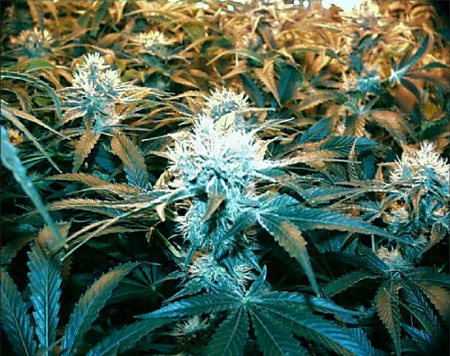A story on USA Today web from January caught my attention this afternoon, running an article about the 11 least likely states to legalize marijuana. I suppose what amazed me the most is that Texas wasn’t on the list.
The article, originally from 24/7 Wall St., based the list on a variety of factors from lack of medical marijuana laws to high penalties for possession as well as low usage rates by residents. The least likely are:
- Alabama
- Arkansas
- Georgia
- Idaho
- Indiana
- Kansas
- Oklahoma
- South Dakota
- Tennessee
- Utah
- Wyoming
The so-called “legalization” of marijuana in the U.S. is a fairly fluid situation. I use quotation marks for legalization because even though, the Obama administration has told some federal law enforcement to back off, the use of pot remains against federal law. The Office of National Drug Control Policy, part of the executive branch of government sums up the present situation:
“Since 1996, 23 states and Washington, DC have passed laws allowing smoked marijuana to be used for a variety of medical conditions. It is important to recognize that these state marijuana laws do not change the fact that using marijuana continues to be an offense under Federal law. Nor do these state laws change the criteria or process for FDA approval of safe and effective medications.”
Bummer dude!
State legislatures are allowing different measures ranging from medical marijuana to recreational pot. The former includes cannabidiol which are products with trace amounts of the active ingredient of pot known as THC. A very strict law regarding use of these products have been signed into law in Texas. But like some other states, the law is far away from recreational or even broader medical use statutes.
Still, one has to consider the small medicinal change in Texas drug law, it has come a long way, Baby.
During the 70s in my East Texas Pineywoods high school, we had an annual general assembly program that featured some four-to-five convicts who resided about an hour away in Huntsville. Sitting on stage in a semi-circle in the high school auditorium were the prisoners, wearing white uniforms and sporting burr haircuts. These incarcerated individuals came to testify. Mostly their testimony was “don’t do drugs.”
The “scared straight” message about drugs — mostly pot – from the prisoners had one point whether any of the kids-gone-bad bore deep merit. That was don’t get caught with marijuana. This was because simple marijuana possession of any amount in Texas — until the time of my graduation in 1974 — could earn one a felony conviction ranging from two years to life in prison. That was only beaten by China in severity, according to a Rolling Stone article about pot laws.
A high school friend had been busted less than a year before the law changed. Even though he had received probation he still carried a felony conviction until his death in an automobile accident the following year.
Today in Texas, a person caught with weed could be arrested and wind up for a maximum in jail for six months, and/or a $2,000 fine for less than two ounces of pot. Or the person could receive a ticket and the same punishment although many times the fine is not as severe as the maximum.
The pot laws in the U.S. are a smorgasbord of punishment. Only half-a-decade or so ago I said I would never see pot legal. I have been surprised with the almost dozen of states that have allowed pot use including the almost handful where recreational use is law.
Maybe why Texas is not in the list of least likely of states to adopt pot use laws is the reason why I am not discouraged that federal and other state laws will now change. Although the nation has turned right, and may see somewhat of a left turn, it might be we live in a nation of people who are otherwise law abiding but like to get stoned. I know many people who were and continue to be stoners among my Baby Boom peers. Many of those are conservative in their politics. That is encouraging for those who would like to see marijuana legal for both medical and recreational use. I won’t elaborate for now. Perhaps some time later, in the book version of eightfeetdeep.


Spelling error report
The following text will be sent to our editors: